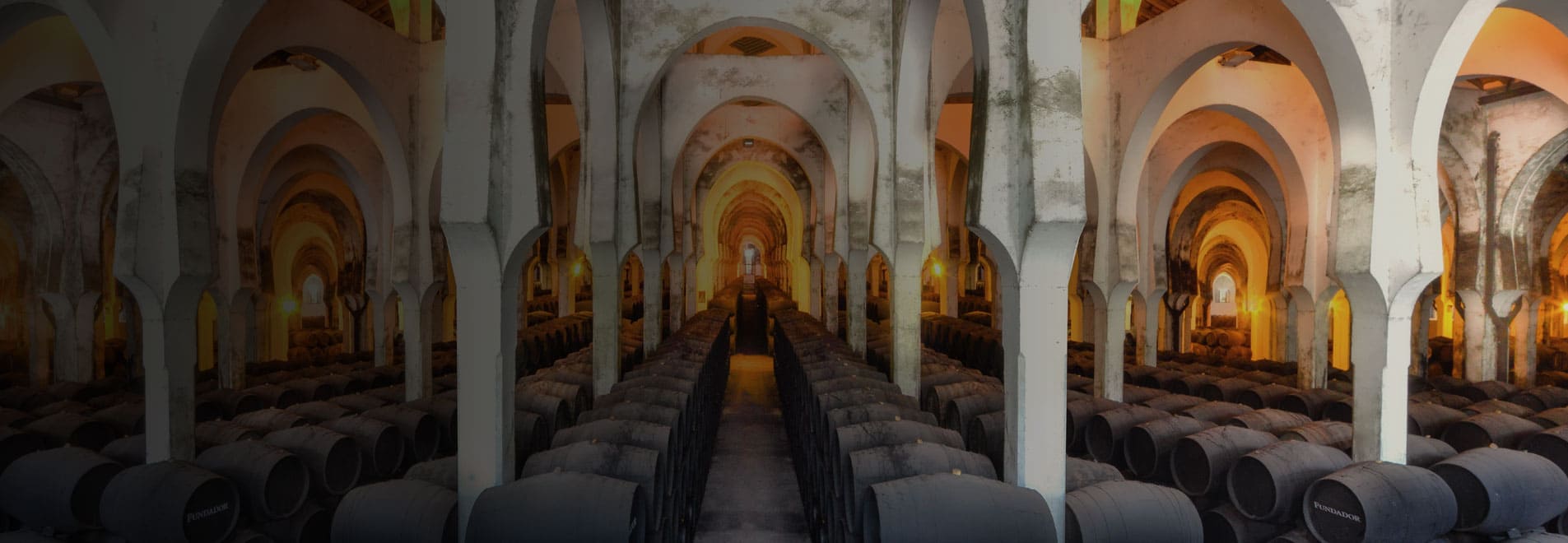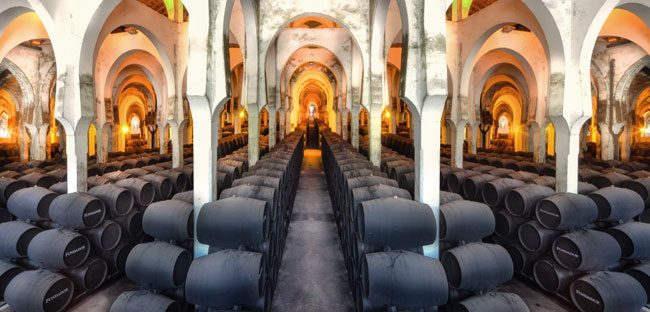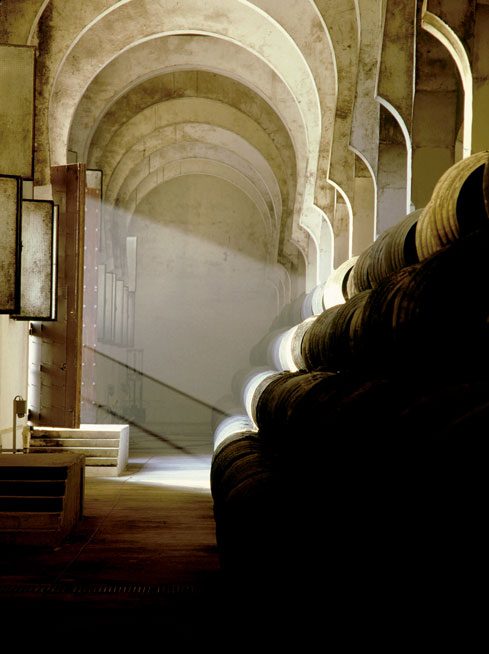 September 24, 2024 7:27 pm
September 24, 2024 7:27 pm
February, 2022
The Marco de Jerez Bodegas, known as cathedral-bodegas due to their special characteristics, are the most representative of the region, becoming the cornerstone in sherry and brandy production process. Find out more about these bodegas and their characteristics in this article.

What is a “cathedral-bodega”?
As we have mentioned in previous posts, the Marco de Jerez region has special conditions for brandy and other distillates elaboration, such as its climate and soil, as well as the architecture of its bodegas, known as “cathedral-bodegas“, one of the icons of this area. To learn about its origins, we have to look back centuries. In the past, sherry wine used to be sold year by year and not required a long ageing process, making its storage easier and less space-consuming. However, in the early 19th century, sherries began to be recognised for their organoleptic characteristics thanks to their careful ageing process, so keeping them in a proper place became necessary. This is the origin of the cathedral-bodegas, which are strategically located in elevated areas near the coast to allow the circulation of fresh air to preserve inside the optimum humidity and temperature levels.
Bodegas of Jerez characteristics
These bodegas are very attractive in terms of architecture, but at the same time they are the ideal place for brandies and sherries ageing. They are different from the rest due to their visual characteristics, such as their impressive dimensions, high ceilings and geographical locations. Our bodega La Mezquita, part of Bodegas Fundador, the oldest in Jerez de la Frontera, is a good example of this. It was built for Fundador’s centenary in 1884, and it is recognised by its hundreds of arches that house more than 40,000 casks where brandies and sherries are aged. Enjoy this virtual tour to learn more about it and be surprised by its interesting facts.
Bodegas architecture: its influence on Sherry wines and brandies
As we have said, their construction is not accidental, it was designed to provide the best conditions to the products. In this way, both its orientation and the roof structure create an ideal space, avoiding temperature changes, absorbing humidity and giving thermal insulation to achieve the ideal temperature. The soil is usually made of ‘albero’ in order to preserve a cool and humid atmosphere in summer, when the temperature is specially high. Height is also crucial, affecting on the volume of air that it can hold and being essential for their ageing process. Moreover, windows are set at a high position and in a specific direction to minimise the warm East wind (Levante wind), and maximise the cool and humid West wind (Poniente wind).

As you can see, bodegas hold a lot of history in their walls, being an essential part of the Sherry wine and brandy production process. Check out our blog and learn more about them.
Sources used and linked to in this article Sherry Wines. Ageing. Available at: https://www.sherry.wine/sherry-wine/production/ageing. Access on 24 February 2022. Vinoble. Evolution of Bodegas of Jerez. Available at: https://www.vinoble.org/en/blog/la-evolucion-de-las-bodegas-jerezanas. Access on 24 February 2022.
Entradas relacionadas
Categorised in: news, blog, press release
This post was written by Equipo Portfolio





Comments are closed here.